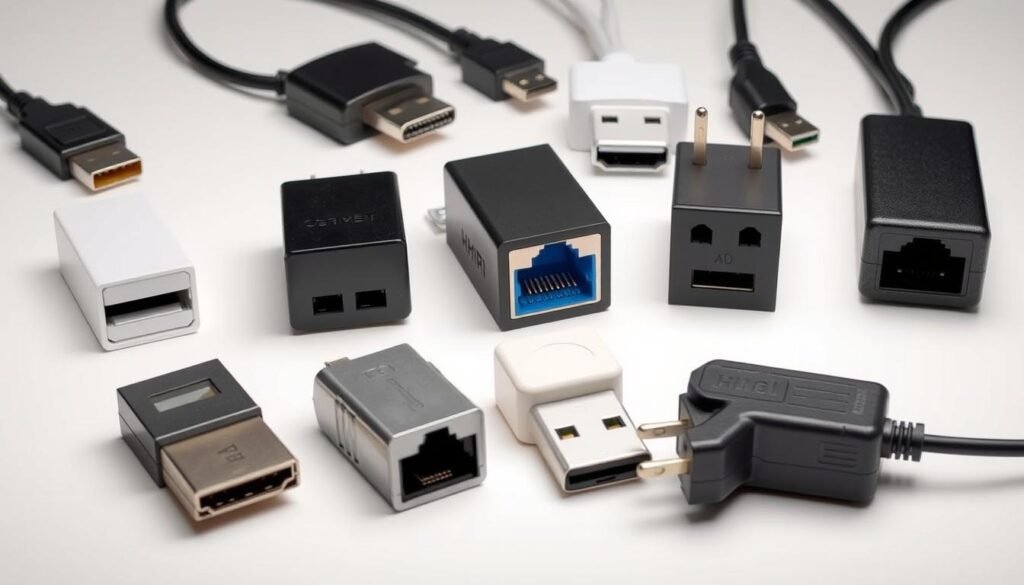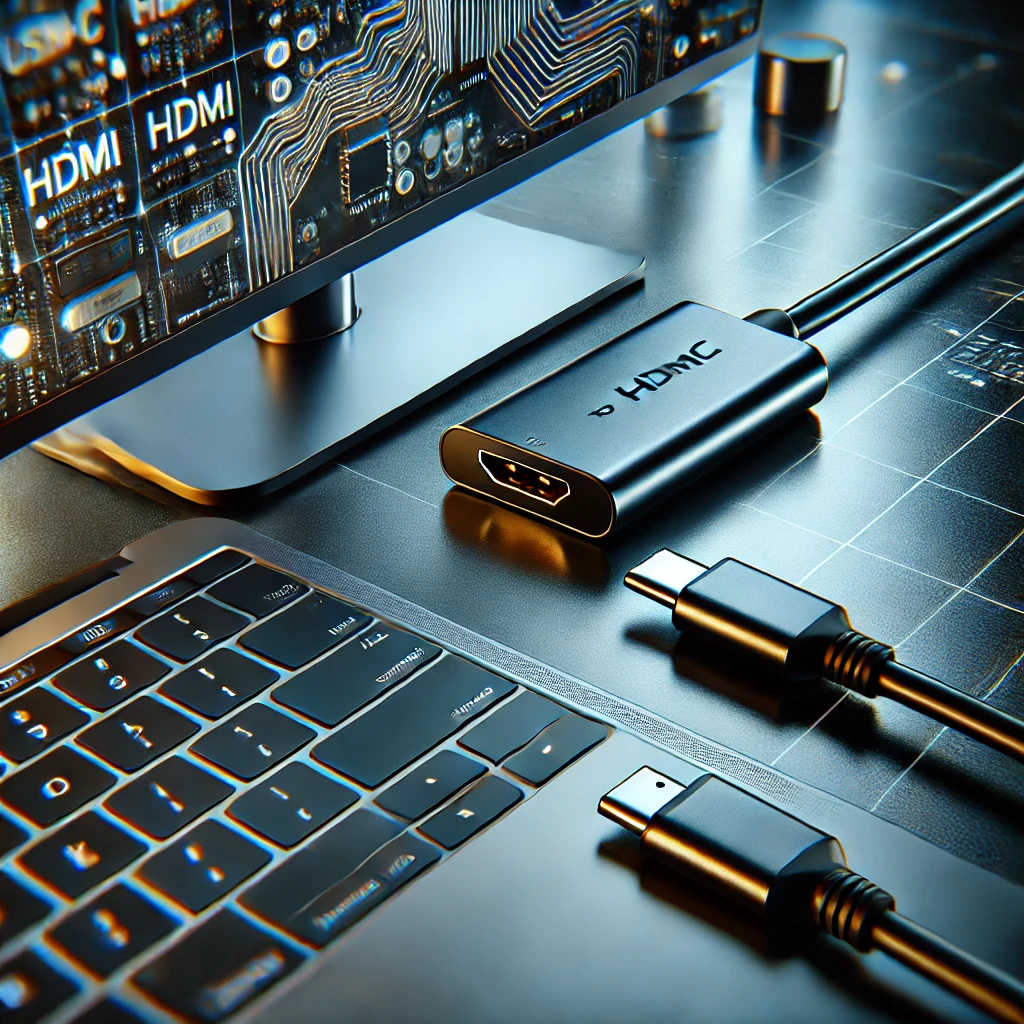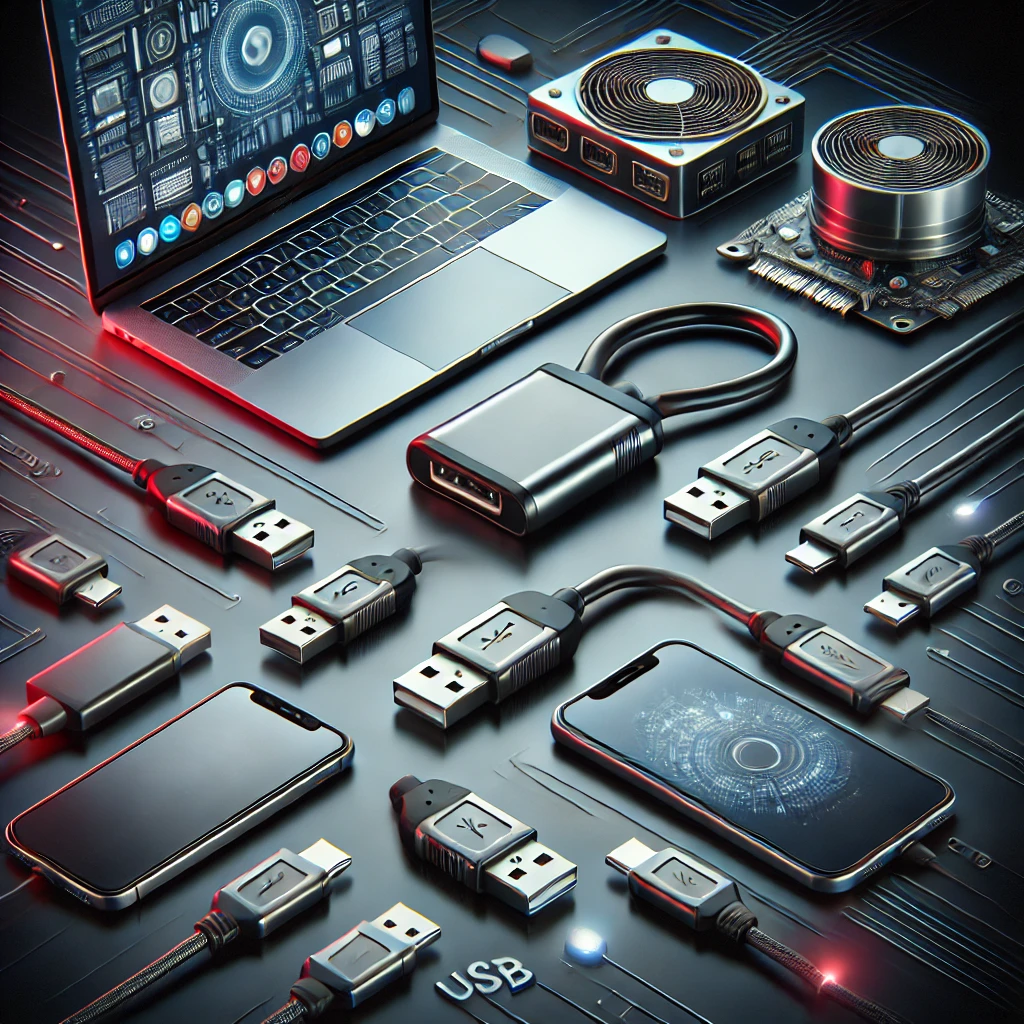In today’s rapidly evolving technological landscape, adaptability is key. As new devices, formats, and standards emerge, the need for seamless connectivity between different technologies becomes increasingly important. Adapters play a vital role in this process by bridging the gaps between incompatible systems. They transform and convert signals, enabling users to connect a wide range of devices, from smartphones to computers and everything in between. This article will explore the numerous advantages of adapters in the tech world, highlighting how they unlock new possibilities for consumers and professionals alike.
1. Enhancing Compatibility
A. Connecting Different Devices
One of the primary advantages of adapters is their ability to connect devices that use different communication standards. For example, a USB-C to HDMI adapter allows users to connect a laptop or smartphone equipped with USB-C ports to an HDMI display. This capability is particularly valuable in a world where manufacturers often favor specific formats for their devices.
B. Supporting Legacy Technology
Adapters also provide a crucial link to legacy technology. Many users still rely on older devices, such as traditional monitors, speakers, or printers, which may not be directly compatible with modern devices. By using adapters, these users can continue to utilize their existing equipment without having to invest in entirely new systems. For instance, a DisplayPort to VGA adapter can connect an older monitor to a new graphics card, extending the life of both devices.
2. Versatility and Flexibility
A. Multiple Use Cases
Adapters are versatile tools that can serve multiple purposes. A single adapter might facilitate audio output, data transfer, and video display—all from one device. For example, a USB-C hub can include multiple ports (HDMI, USB-A, Ethernet), allowing users to connect various devices simultaneously. This flexibility is particularly advantageous for users with limited ports on their laptops or tablets, helping them create a more efficient workspace.
B. Traveling Convenience
For travelers, adapters can significantly reduce the amount of gear needed. A compact multi-port adapter can replace several individual cables and adapters, making it easier to carry essential connectivity tools without adding bulk to your travel bag. This is especially important for digital nomads who rely on multiple devices for work and play. Furthermore, some adapters come with built-in charging capabilities, enabling you to power devices while connecting them, which is a great space-saver for travel.
3. Cost-Effectiveness
A. Avoiding Upgrades
Investing in adapters can be a more cost-effective solution compared to upgrading entire systems. Instead of purchasing new devices that are compatible with the latest standards, users can simply buy an adapter to connect their existing equipment. This approach allows individuals and businesses to maximize their technology investments while minimizing expenses. For example, instead of buying a new printer with Wi-Fi capability, you can use a USB to Ethernet adapter to connect an older printer to your network.
B. Extending Device Lifespan
Adapters can help extend the lifespan of older devices by enabling them to connect with newer technologies. For example, a USB audio adapter allows an older laptop to connect to modern USB headphones or speakers, making it possible to continue using the laptop for audio needs. This not only saves money but also reduces electronic waste, contributing to a more sustainable approach to technology.
4. Improving User Experience
A. Simplifying Connections
Adapters simplify the process of connecting devices. With the right adapter, users can avoid the hassle of complicated setups and configurations. This ease of use enhances the overall experience, allowing individuals to focus on their tasks rather than troubleshooting connectivity issues. For example, using a plug-and-play USB-C to HDMI adapter means you can quickly switch between displays without fiddling with settings every time.
B. Enhancing Performance
Many adapters are designed to optimize performance. For instance, high-quality USB audio adapters can improve sound quality when connecting headphones to a laptop or smartphone. Similarly, HDMI adapters that support high resolutions and refresh rates can significantly enhance visual experiences for gamers and multimedia enthusiasts. Additionally, adapters that include features such as digital signal processing can further enhance audio and video quality.
5. Facilitating Innovation
A. Encouraging Technological Advancements
The existence of adapters encourages innovation in the tech world. As new formats and standards emerge, adapters allow for the integration of cutting-edge technologies with existing systems. This fosters an environment where both manufacturers and consumers can experiment with new ideas without the fear of being locked into outdated technology. For example, the introduction of adapters for USB-C ports has allowed consumers to use the same charging and data transfer ports across multiple devices, promoting a standardized approach to connectivity.
B. Supporting the Internet of Things (IoT)
With the rise of IoT devices, adapters play a crucial role in connecting various gadgets and systems. For example, smart home devices often require adapters to communicate with central hubs or routers. As more devices join the IoT ecosystem, the demand for reliable adapters will continue to grow, further driving innovation in the industry. This adaptability ensures that users can integrate new devices into their existing systems without significant disruption.
6. Expanding Accessibility
A. Bridging the Digital Divide
Adapters can help bridge the digital divide by providing access to technology for a broader audience. For instance, older devices can be adapted to work with modern networks and services, allowing those who cannot afford new devices to continue using what they have. This is particularly significant in educational settings, where budget constraints can limit access to technology.
B. Enhancing Usability for People with Disabilities
Certain adapters can improve accessibility for individuals with disabilities. For example, USB adapters that connect to adaptive devices or specialized software can help those with mobility challenges use smartphones and tablets more effectively. By ensuring that technology is accessible to everyone, adapters play a crucial role in promoting inclusivity in the digital age.
Conclusion
Adapters are more than just simple connectors; they are powerful tools that unlock numerous possibilities in the tech world. By enhancing compatibility, offering versatility, and improving user experience, adapters enable users to make the most of their devices while navigating an increasingly complex technological landscape. Whether you are a tech enthusiast, a business professional, or an everyday user, understanding the advantages of adapters can help you maximize your productivity and enjoyment in a connected world.
As technology continues to evolve, the importance of adapters will only increase. Embrace these tools to connect your devices, extend their lifespan, and enhance your overall tech experience. If you have any experiences or tips related to using adapters, feel free to share in the comments below!
Resources for Further Learning
- YouTube Tutorials: Look for video guides on different types of adapters and how to use them effectively.
- Tech Forums: Join online communities to discuss and share insights on adapters and connectivity solutions.
- Books on Technology: Consider reading literature that delves deeper into the evolution of technology and the role of adapters.
FAQs About Adapters
- Are all adapters universal?
- No, not all adapters are universal. Compatibility depends on the specific devices and standards involved, so it’s essential to verify compatibility before purchasing.
- Can I use an adapter to improve audio quality?
- Yes, high-quality audio adapters, such as USB DACs (Digital to Analog Converters), can significantly enhance sound quality when connecting headphones or speakers to devices.
- Do adapters affect performance?
- The quality of the adapter can impact performance. High-quality adapters are designed to minimize signal loss and maintain high-quality audio and video output.
By understanding the numerous advantages of adapters, you can make informed decisions that enhance your tech experiences and embrace the full potential of your devices.
Related Articles:
- Mastering Adapters: Tips for Proper Use and Maintenance
- Adapters 2.0: Navigating the Future of Connectivity
- Decoding Adapter Jargon: A Beginner’s Guide to Adapter Terminology
- Navigating the Adapter Maze: Tips for Choosing the Perfect Fit
- Demystifying Adapters: Debunking Common Misconceptions
- Unlocking Possibilities: The Advantages of Adapters in the Tech World
- Decoding the Magic: How Adapters Make Tech Speak the Same Language
- Adapters Through the Ages: A Journey from Analog to Digital
- Adapters Through the Ages: A Journey of Technological Evolution
- Adapters: The Unsung Heroes of Connectivity



